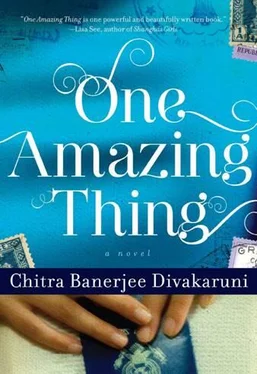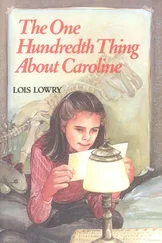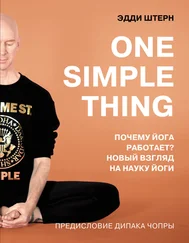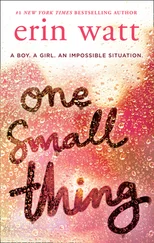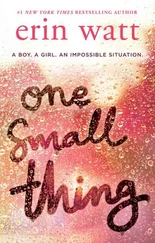In the morning, he runs out to discover the kitten gone. In school he is unable to pay attention-even to math. He rushes from the school bus to the junkyard, searches frantically through piles of garbage, and finally discovers the kitten shivering under a bush. Even when he hugs it hard against his thumping chest, hatred simmers inside him.
HE WILL REMEMBER THIS HATRED THE DAY HIS MOTHER DIES. Guilt will press down like a ball of iron on his chest no matter how much he rationalizes it, telling himself that he wasn’t responsible, because look at Marvin, wasn’t he still walking around hale and hearty in spite of all the boy’s wishing?
He will be sent to live with foster parents. They’ll turn out to be an older, childless couple, a bit strict but clean and organized. They will not get him a pet-and that’s good, because surely then the iron ball would crack his chest. They will make sure he gets to school on time and does his homework and has nutritious meals. They will take him to art museums and classical music concerts and will not upbraid his indifference to such things. They will recognize his talent and enter him in math contests-regional, then state, then national-and winning these contests will begin to change the way he feels about himself.
He knows his mother would have done none of this. Why then, lying in a bedroom all his own, the wallpaper of flying dragons that he picked himself lit ghostly blue by the night-light-a room he couldn’t have imagined when he lived in the old apartment-should he give in to tears?
FOR A WHILE AFTER THAT TRAUMATIC NIGHT, THINGS GO WELL. The boy cleans out the abandoned freezer in the junkyard and lines it with his old clothes. He keeps inside it a bowl of water and a dish of cat food bought with money he has stolen from his mother’s purse and Marvin’s wallet, a couple of cautious dollars at a time. After school each day, he takes Shere to the other end of the junkyard and plays with him, keeping a wary eye out for his mother and Marvin, because he doesn’t want them to know what he’s doing. When it’s time for him to go in, he reluctantly puts Shere in the freezer, bids him good night, and wedges a stick under the lid-enough to allow the kitten to breathe without letting it escape. This way, the raccoons and wild dogs that roam the junkyard at night can’t get to it. The kitten learns to recognize the boy. It launches itself at his chest as soon as he opens the freezer lid, purring so loudly that its whole body vibrates. The boy steals more money-what else can he do when his mother will not give him an allowance?-to buy Shere a catnip ball and can’t stop grinning as he watches the kitten go crazy over it. Then one day he returns from school to find the stick with which he had wedged the lid open lying on the ground. The freezer lid is shut, and when he opens it, he discovers that the kitten has suffocated.
He does not tell his mother. From this time on, he speaks to her as little as possible. She tries at first to engage him in conversation; then she gets angry. She doesn’t have time for this nonsense, this sulking without a reason when she’s knocking herself out to provide for him. He finds a pie server in a bottom drawer, digs a hole in the junkyard, and buries the stiff kitten-body though he can hardly bear to touch it. He can’t eat anything the rest of the day or the next, but no one notices because he fixes his own meals. At night he lies in bed, going over the moment when he had last wedged the stick in the freezer door. How could it have fallen out? Had he been in a hurry? Had he been careless? Had someone followed him and pulled the stick out on purpose? Who would do something like that? There are no answers, and perhaps that’s why the questions keep replaying in his head. Sometimes when people are talking to him, the questions come back, very loud, and he is unable to hear anything else. He gets in trouble at school for this; a couple of his teachers wonder if he’s mentally handicapped. But they’re overworked; since he doesn’t cause trouble like the others, they let him be. At home he gets clouted on the head when he blanks out while Marvin is talking to him. Once his mother sees this and it leads to a huge fight between her and Marvin. Earlier, such a development would have pleased the boy. Now he hardly notices.
The only time he can forget the feel of the kitten’s fur under his palm, or the way it butted its head against his shins, is when he’s doing math. So he does more and more of it, asking his teacher for extra worksheets that he brings home, fractions and decimals, and word problems about Aunt Anna who’s driving from Boston to Philadelphia at a certain speed, or a bathtub where the stopper doesn’t quite fit, and how long would it take to fill. The words transform themselves into numbers that line up like acrobats, numbers that can be trusted to perform the way they’re supposed to. He begins to understand their nature. They are ancient and immortal, not frail and easily broken. As long as he offers them his full attention, they will never abandon him. They sing their answers to him, and the inside of his head fills with light as he writes them down.
THERE HAD BEEN A NAKEDNESS ABOUT MR. PRITCHETT’S STORY, the feeling of a wound not yet healed. Perhaps that was why no one said anything, Uma thought. Or were they hoarding energy and oxygen for their own tales?
The noise of water had grown louder, more uneven, a chug-chug followed by a silence, then a gurgling, swallowing noise. Uma tried to visualize what might be happening. Cameron told them to roll up their pants legs or hitch up their skirts and remove their shoes and socks before getting off their chairs.
“Once you’ve taken off your socks, you need to put your shoes back on so you don’t cut your feet on broken glass. Keep your socks in your pocket, along with these.” He handed out pieces of blue cloth, the last bits of Malathi’s sari. “We have to move to the employees area and sit on the tables there. The ceiling at this end of the room is sagging more than before.” They stared up at the hole that yawned above. In the near blackness, Uma couldn’t tell how much worse it really was. “Use the cloth to wipe your feet before wearing your socks again,” Cameron said. “Stay as dry as you can so you don’t get chilled.”
Everyone did as Cameron instructed. Maybe they were grateful for these small, concrete acts that they could successfully perform. When Uma pulled off her socks with an awkward hand, she almost dropped one. Lunging to grab it, she hit her broken wrist against the chair. Pain shot through her and she cursed out loud. Standing, she saw that the water reached above her ankles, and the inevitability of that rising, more than the pain and the cold, made her want to cry. The group shuffled to their new location and pushed the tables around until they formed a triangle with gaps. Lily helped Jiang, who was holding her arm out stiffly, onto a table, and beckoned to Tariq to join them. Uma climbed onto the second table. Cameron wiped her feet for her and pulled her socks back on. Uma had expected Mrs. Pritchett to join them, but the older woman went to the third table, where her husband was sitting. Uma wondered if his story made her do this. Mrs. Pritchett perched on the edge, leaving the center spot for Mangalam.
Uma moved closer to Cameron to make room for Malathi, who was climbing onto their table. Three to a tabletop was a snug fit. But it would keep them warmer. Cameron was asking if anyone suffered from diabetes. No one confessed to it because Mangalam was holding a big plastic bag filled with sugar packets. When Cameron nodded, Mangalam passed the bag around. Uma took three packets. Greedily, she tore open the corner of one with her teeth and poured some onto her tongue. She was looking forward to the taste, but it was overly sweet and made her want to throw up. The unfairness of this made her want to cry.
Читать дальше
